Please filter by different types of publications
All Scientific Publications

This paper reviews and summarises information on the polecat’s status and range-wide population trends.
Download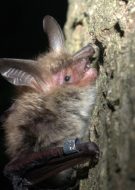
In this study, we report the genetic diversity and structure of M. bechsteinii across Britain and Europe.
Download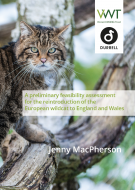
This report constitutes a preliminary assessment of the biological feasibility of reintroducing the European wildcat to regions of England and Wales. This was done by modelling and mapping potentially suitable wildcat habitat across England and Wales in the first instance, and by identifying the range of potential risk factors that may negatively impact a wildcat reintroduction.
Download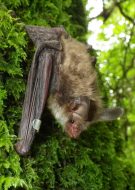
This paper presents a DNA methylation method to assess ages of bats.
Download
This paper presents the results of analyses of polecat livers collected from road casualties for residues of second-generation anticoagulant rodenticides.
Download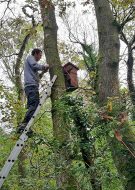
This paper presents the results on the provision and occupancy of pine marten den boxes in Galloway Forest, Scotland. 50 den boxes were installed in order to increase the availability and diversity of suitable den sites for breeding female martens and aid monitoring of the marten population. A proportion of the boxes was occupied by martens every year and the boxes were used by breeding females to raise their young.
Download
Polecat distribution surveys at ten-year intervals have been recommended in order to monitor changes in polecat distribution. The aim of this survey was to gather up-to-date information on the distribution of polecats and polecat-ferrets during the period 2014-2015.
Banner photo: ©Nikki Charlton
Download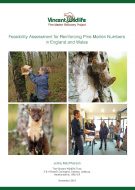
Successful translocations of pine martens to recently and historically occupied suitable habitat could be a major proactive step towards improving the conservation status and genetic diversity of the pine marten in England and Wales. This report provides an initial assessment of the feasibility of undertaking translocations to reinforce existing populations that have failed to recover naturally.
Download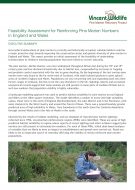
Successful translocations of pine marten to recently and historically occupied suitable habitat could be a major proactive step towards improving the conservation status and genetic diversity of pine marten in England and Wales. The full report provides an initial assessment of the feasibility of undertaking translocations to reinforce existing populations that have failed to recover naturally.
Download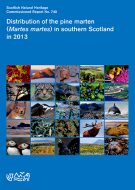
This report follows on from a pine marten Expansion Zone Survey conducted in 2012 (Croose et al., 2013), which provided information on current patterns of pine marten distribution in Scotland following population recovery and range expansion since the 20th century.
Download